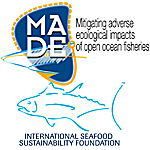The Marine Stewardship Council (MSC) is a non-profit organization who sets an environmental standard to assess and certify sustainable fisheries worldwide. The sustainability of the fisheries activities is evaluated through an independent third-party methodology measuring 31 performance indicators structured into 3 principles, the status of the stock, the environmental impact and the management system. Through a gradual and dynamic scoring system, defined by the MSC's Theory of Change, every fishery must fulfill minimal requirements in order to be certified but, moreover, it must also accomplish with additional conditions to improve its performance along the 5 years period of the certificate. This methodology, assured by annual surveillance activities carried out by independent Certification and Assessment Bodies (CABs), not only guarantees the sustainability of the fisheries, but also becomes a driving force to minimize their impacts and improve the global management of the activity. The present document analyzes the main environmental impacts of the tuna fisheries engaged in the MSC program and the actions undertaken for each fishery to overcome the certification requirements and the improvement conditions established. This analysis is based on the several reports elaborated along the certification process of the tuna fisheries in the program, that means mainly public determination reports and annual surveillance reports, but also on the results obtained by the study “Researching the Environmental Impacts of the MSC certification program” carried out in 2011 by the consultancy body MRAG, which analyzed 447 fisheries involved within the MSC and assessed the implementation of the Theory of Change.
- Presentation

 PDF version
PDF version
